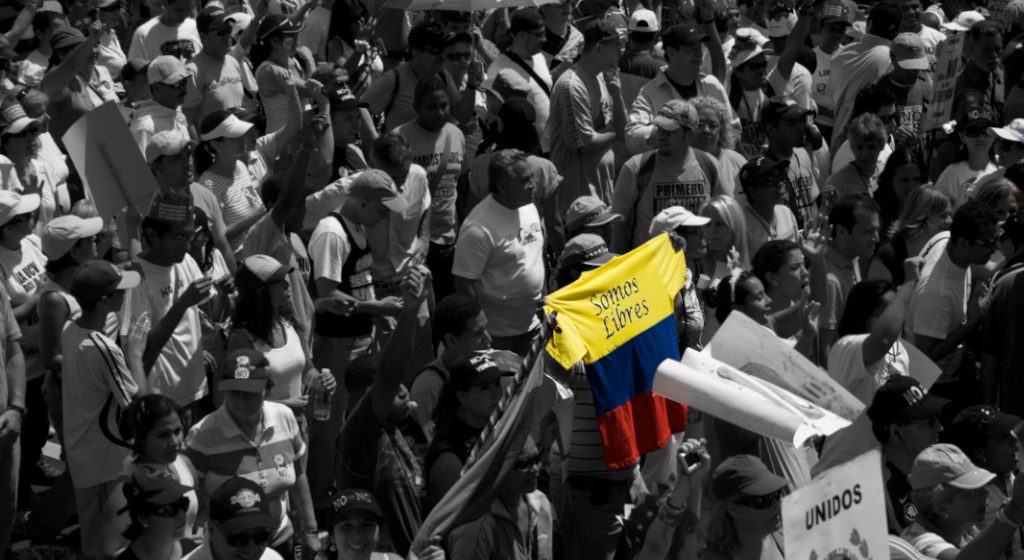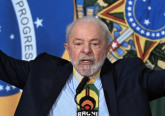In early hours of Monday, October 17th, after the announcement of the results of the regional elections, the Venezuelan opposition decried foul play and electoral fraud. Such accusations of course are very hard to prove in any case, and even more so in today’s authoritarian Venezuela. Yet, what’s done is done. The regime announced to have won 18 governorships, while the opposition appears to have only won five. Even if the fraud accusations were true, the only certainty, as of today, is that – although 83% of Venezuelans rejected President Maduro’s government as of August 2017 – Venezuela’s political map is still dominated by Chavismo.
This latest episode of contested elections adds to the already high levels of political conflict and ongoing crisis in the country. Let us briefly review the numbers: Venezuela is world champion in inflation and murder rates; it is among the ten most corrupt countries with strong indications of being a narco-state; there are significant shortages of food and medical supplies; political prisoners are filling up jails and politicians are being forced into exile; the country moved from receiving migrants to sending out refugees; all state institutions, such as the police and military forces, the electoral authorities and judiciary as well as state resources are tightly controlled by the government; and if all of this were not enough, the chances of being wounded or even getting killed during protests have radically increased. Is there a way out of this crisis? Yes, there is, and here is how.
Electoral autocracies, are non-democratic regimes that combine the existence of otherwise democratic institutions, like courts, parliaments, electoral authorities, with an autocratic exercise of power. In other words, while nominally democratic institutions exist, they are largely a façade because they are wholly subservient to incumbents and help maintaining their hold on power. Such regimes are called electoral autocracies because oftentimes elections do take place, despite their non-democratic spirit and being all but free and fair. Being a regime opponent, both active and inactive, in this context is very hard. Why? Because the regime will deploy all its resources to suppress dissent and reduce potential threats by a) dividing the opposition and b) demoralizing and demobilizing opposition voters. Both Chávez and Maduro’s regime have been oftentimes successful in completing this task. Therefore, avoiding exactly those two traps is going to be key for the opposition to succeed.
In a country where 83% reject the government but only 45% voted in favour of the opposition in this year’s regional elections, those wanting to topple Maduro need to urgently reset and rethink its strategies. Opponents to Chavismo have by no means been idle over the past 18 years. On the one hand, the opposition has promoted immediatismo, that is, short term tactics to oust Chavismo through a general strike, a coup and boycotts. On the other hand, it has also invested in successively asserting itself and building strength by organising referenda, protests, creating an alliance, and holding a ground breaking plebiscite, among many other forms of “everyday resistance.”
It’s time to pause and look at was has worked and what has not. Strikes and boycotts have not always been useful. Rather, in some cases it has allowed the regime to strengthen its hold on power and weakened the opposition. Autocratic engineering of the political process was precisely a result of the opposition’s decision to abandon the parliament in 2005. The military purge after the strikes and protests of 2002, also helped Chávez to erase his enemies within this institution.
Protests have oftentimes led to internal fractions within the opposition or frustration among voters, such as in 2014 and 2017, where only part of the opposition, such as Leopoldo Lopez, Maria Corina Machado and Antonio Ledezma called to the streets or when the Mesa Unida de Democracia (MUD) was unable to deliver on the final goal of kicking Maduro out only a few months ago. This is not to deny that mobilization has, at other times, led to successful outcomes, when organised, planned and carried out accordingly. A concrete goal has been crucial, both when the proposed referendum to enable re-election was rejected in 2007, or when voters participated in a plebiscite with the explicit goal of asking for the restoration of democracy in July 2017.
Whatever the opposition decides to do, it cannot act alone. Divisions have only strengthened the regime and have demobilised voters over time. United they stand, divided they fall. This is the opposition’s reality in most electoral autocracies. Venezuela’s opposition has experienced both unity and fragmentation, and it should have learned by now that it is only through unity that they can successfully challenge the incumbent regime.
In past instances of collaboration, the opposition has already proven to be highly competitive when working together. First, there is the numerical victory of the 2010 parliamentary elections, in which – despite gerrymandering and other governmental shenanigans – the opposition won 48% of the vote. Second, in 2015 the opposition succeeded in achieving a supermajority in the National Assembly with the highest levels of voter participation in the country’s history. Third, opposition candidate Henrique Capriles narrowed the gap to 1,5% to Maduro in the 2013 presidential election (compared to Rosales who lost by a 25% point difference), in spite of having to compete on highly uneven playing field. In all these instances, the opposition presented a united front.
The opposition needs to go back to strengthening its cooperation and revitalize the MUD. There is no time and no need to create new alliances. While it is true that there is a deep desire within the population for a new mechanism to confront the government, what really needs to be done is to reform what’s already there. The MUD needs to be a more inclusive alliance. This means that critical voices and abstentionists, such as Maria Corina Machado and her new alternative alliance Soy Venezuela, must be included into the already existing platform. Every vote counts, thus, every potential mobilizing actor counts as well.
Rethinking also implies coming up with a new and clear short term and long term programmatic outlook beyond the already existing anti-regime rhetoric. Research has shown that voters in electoral autocracies, even if dissatisfied with the incumbent, will only defect when the opposition appears to be a serious and alternative challenger. The MUD will need to come up with a true alternative platform that convinces voters of a new project, new ideas and new hopes. In the short term, the country needs to hear a) whether there will be mobilizations and if so, under what conditions and for what purpose, b) if and how the opposition will participate in the municipal elections that should take place in the remainder of this year, and, c) how the opposition will ensure that presidential elections will take place in 2018.
In the long run, many questions need to be answered. For example, on the economic front, what kind of model is the opposition hoping to implement? What is going to be done about the destruction of the oil sector? On the social front, is the opposition looking for reforms to the famous misiones, and if so, how? What kind of education, pension or health systems are going to be implemented? How will Venezuelans having left the country and living abroad be reintegrated? And finally, on the political front, how is a new government going to deal with the recent past? Is Venezuela ready for amnesty laws or will it witness prosecutions of those who committed human rights violations under Chavismo? After so many years of conflict, how exactly will a new government create the conditions for reconciliation? Will the parliament push for the drafting of a new constitution? Will re-election be eliminated? The list could go on. These are all relevant questions that should not wait until after eventual regime change.
Over the years, the government has dealt with and taken care of its most dangerous challengers, including Leopoldo López, Capriles, Ledezma and others, for instance, by throwing them in jail. To prevent the regime from being able to undermine and disarticulate the opposition, the MUD needs to distribute responsibility on many shoulders, refresh its image and open the stage for emerging leadership. While it is true, that more experienced political elites have been fighting hard for transition, it is the time to see and hear from new faces. Looking back to Venezuela’s reality of the 1990s, when AD and COPEI closed the ways for new leaders while launching candidates that had been in the game for decades, reminds us that a rigid political system may induce voters to choose outsider candidates. Chávez is evidence of that.
It may seem that fighting an electoral autocracy or even full-fleshed dictatorships is futile and restoring democracy impossible, because of government’s oppressive control of institutions, elections, media, police and resources. Yet, examples from Eastern Europe, South America and Africa showcase that opposition victories and transitions through the ballot box do happen. The 2015 Venezuelan parliamentary election also confirms that when the opposition organises, electoral victory is possible.
Venezuela’s transition to democracy not only needs and should happen through electoral means. In order to guarantee the country’s long term political stability, it has to happen democratically. Despite the uneven playing field and against the odds, regime change can result from electoral competition, even in today’s Venezuela; as long as the opposition were to reset, rethink and restart its efforts. At the end of the day, there is good reason to believe that la oposición unida jamás será vencida.





